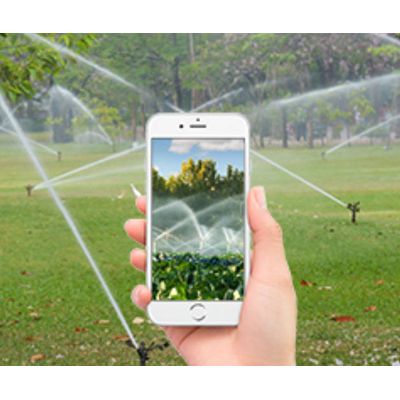


Enhancing Agriculture with Intelligent Irrigation Systems
Abstract
Irrigation is crucial for successful crop growth and yield, but traditional irrigation methods often result in water waste and inefficiency. To address this issue, intelligent irrigation systems have been developed to provide precise and efficient irrigation management based on real-time data. This article explores the benefits of intelligent irrigation systems for agriculture, including improved crop yields, reduced water usage, and increased sustainability. It also discusses the key features of these systems and their potential impact on the future of agriculture.
Introduction
Agriculture is a vital industry that provides food for the world's population. However, it is also one of the most water-intensive industries, accounting for up to 70% of global freshwater usage (Food and Agriculture Organization, 2021). As water resources become increasingly scarce, it is crucial to find ways to use water more efficiently in agriculture. One promising solution is the use of intelligent irrigation systems.
Intelligent irrigation systems are designed to provide precise and efficient irrigation management based on real-time data. These systems use sensors, weather data, and other information to determine the optimal amount of water for crops and deliver it in the most effective way. By providing just the right amount of water at the right time, intelligent irrigation systems can help farmers save water, reduce costs, and improve crop yields.
Benefits of Intelligent Irrigation Systems for Agriculture
Improved Crop Yields: Intelligent irrigation systems can help improve crop yields by providing the right amount of water at the right time. By continuously monitoring soil moisture levels and other factors, these systems can ensure that crops receive the water they need to grow and thrive. This can result in higher crop yields and better-quality produce.
Reduced Water Usage: Traditional irrigation methods often result in water waste and inefficiency due to overwatering or uneven distribution. Intelligent irrigation systems can help reduce water usage by providing precise irrigation management based on real-time data. This can help farmers save water and reduce their water bills.
Increased Sustainability: Intelligent irrigation systems can help improve the sustainability of agriculture by reducing water usage and improving crop yields. By using water more efficiently, farmers can reduce their impact on the environment and preserve valuable water resources for future generations.
Key Features of Intelligent Irrigation Systems
Sensors: Intelligent irrigation systems use sensors to measure soil moisture levels, weather conditions, and other factors that affect crop growth and irrigation needs.
Real-Time Data: These systems use real-time data to provide precise and efficient irrigation management. By continuously monitoring soil moisture levels and other factors, they can adjust irrigation schedules and amounts to meet changing crop needs.
Automation: Intelligent irrigation systems can be fully automated, minimizing the need for manual intervention. This can save farmers time and reduce labor costs.
Remote Monitoring: These systems can be remotely monitored and controlled, allowing farmers to manage their irrigation systems from anywhere. This can help farmers save time and respond quickly to changing conditions.
The Future of Agriculture with Intelligent Irrigation Systems
Intelligent irrigation systems have the potential to revolutionize the way we think about agriculture. By providing precise and efficient irrigation management, these systems can help farmers save water, reduce costs, and improve crop yields. As water resources become scarcer and more valuable, the use of intelligent irrigation systems will become increasingly important for sustainable agriculture.
Conclusion
Intelligent irrigation systems are a promising solution for improving the efficiency and sustainability of agriculture. By providing precise irrigation management based on real-time data, these systems can help farmers save water, reduce costs, and improve crop yields. As the world's population continues to grow and water resources become increasingly scarce, the use of intelligent irrigation systems will become essential for the future of agriculture.
